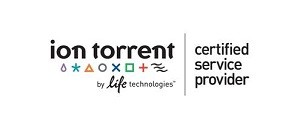Diamond-Blackfan anemia (DBA) is an inherited red cell aplasia, which is usually evident during the first years of life. The main features are macrocytic anemia, reticulo-erythrocytopenia and almost complete absence of erythroid progenitor cells in the bone marrow. Patients exhibit growth retardation, while approximately 30-50% have congenital abnormalities, e.g. craniofacial abnormalities, upper limb anomalies and abnormalities of the heart and the urinary tract. The majority of patients have increased red cell mean corpuscular volume (MCV), elevated erythrocyte adenosine deaminase activity (ADA) and relatively increased hemoglobin F (HbF). However, some patients with DBA do not exhibit these findings, and even in the same family the symptoms may vary among affected members.
Approximately 14 types of Diamond-Blackfan anemia (DBA) have been described, due to mutations in approximately 12 known genes and almost all are inherited in an autosomal dominant manner.
We perform DNA sequence analysis, via Next Generation Sequencing (NGS) on a Genome Analyzer – Ion Proton platform, of all exons and intron-exon junctions/splice sites of the 7 genes:
| GENE | OMIM GENE | OMIM DISEASE | OMIM DISEASE | INHERITANCE (AR, AD, XL) |
| RPL11 | 604175 | 612562 | Diamond-Blackfan anemia 7 | AD |
| RPL35A | 180468 | 612528 | Diamond-Blackfan anemia 5 | AD |
| RPS10 | 603632 | 613308 | Diamond-Blackfan anemia 9 | AD |
| RPS19 | 603474 | 105650 | Diamond-Blackfan anemia 1 | AD |
| RPS24 | 602412 | 610629 | Diamond-blackfan anemia 3 | AD |
| RPS26 | 603701 | 613309 | Diamond-Blackfan anemia 10 | AD |
| RPS7 | 603658 | 612563 | Diamond-Blackfan anemia 8 | AD |
allowing us to detect, through the use of specially developed bioinformatics tools, >98% of all pathogenic mutations of the genes, covering a considerable proportion (~60%) of Diamond-Blackfan – DBA cases (minimal gene panel).
Where possible and/or necessary, we carry out additional MLPA analysis in order to detect deletions/duplications of the genes (please consult the final test report).
The test is highly sensitive and complex, so it is necessary that the results are assessed by a specialized team of clinical and molecular geneticists, in order to ensure safe and reliable testing.
Proper clinical genetic assessment and genetic counseling, both before and after testing, is essential in order to determine the optimum testing strategy and also to communicate properly the concepts of pathological and normal.

